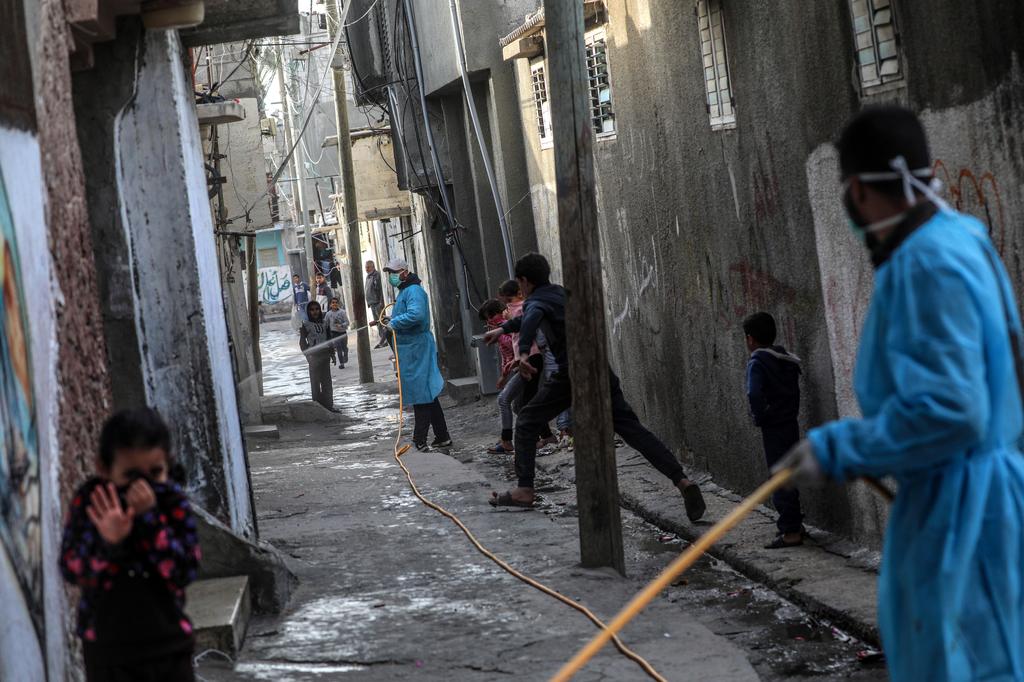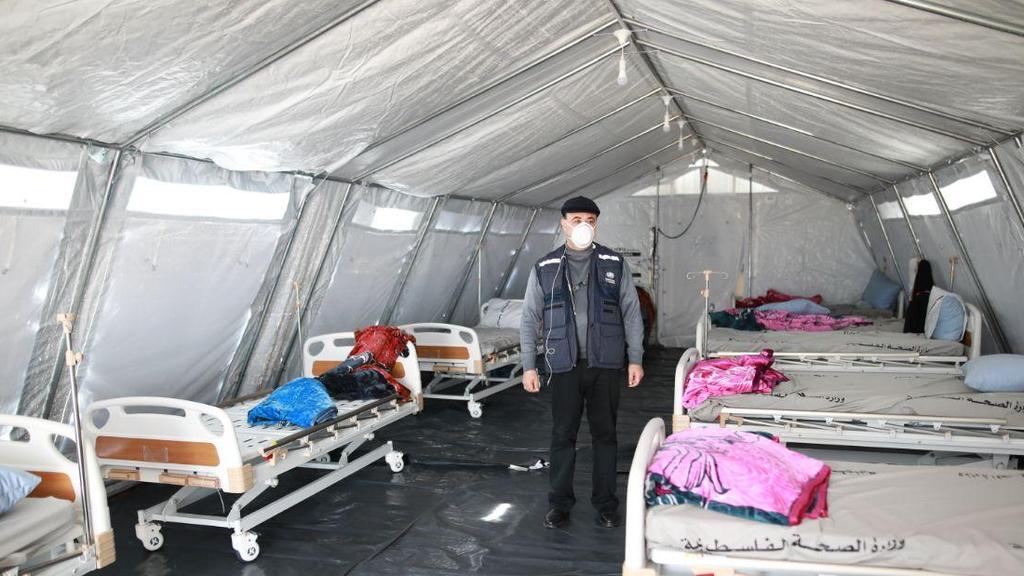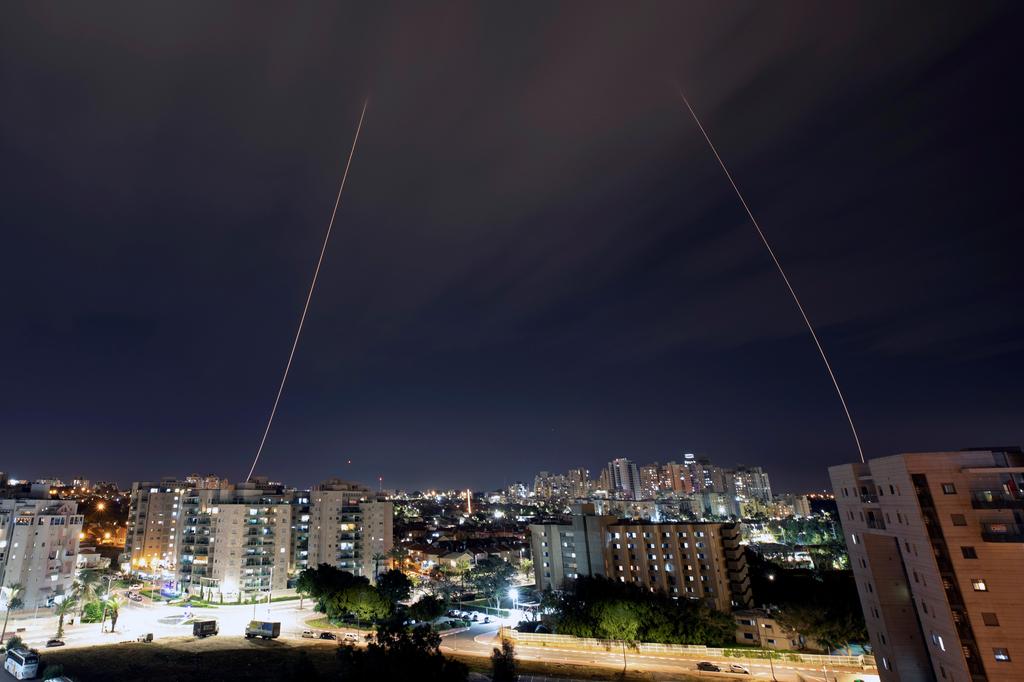Getting your Trinity Audio player ready...
Prime Minister Benjamin Netanyahu and Defense Minister Naftali Bennet have recently been briefed by army commanders about concerns that the coronavirus outbreak in the Gaza Strip might result in another cross-border flare-up.
If Hamas officials would become overwhelmed by the number of COVID-19 cases in Gaza, they might lash out on Israel as a way to demand medical and logistical assistance to deal with the epidemic. The military officials' prognosis sounds almost apocalyptic in its estimates, predicting rocket fire so massive, it hasn't been seen in Israel in years.
Scenarios include rocket attacks and mortar shelling of Israeli towns and cities in order to force Israel, and the international community, into actively helping the Hamas rulers to combat the spread of the virus.
Friday's rocket launch on the city of Sderot was a reminder to residents of the south, who are homebound under government orders, that prolonged periods of time in bomb shelters will not allow social distancing and lead to more infections on the Israeli side of the border.
Another nightmare scenario includes masses of Palestinians rushing the border fence to save themselves from the raging disease in the besieged enclave. These will not be violent demonstrators but frightened and helpless civilians, many of whom might be infected and the military response will have to be a non-violent one because Israel cannot claim it has any legitimacy to open fire on sick civilians.
3 View gallery


Palestinians spray disinfectant as a precaution against the spread of the Covid-19 coronavirus, in the streets of Al Nusairat refugee camp, central Gaza Strip
(Photo: EPA)
In their recommendations to the political leadership, the military wants government officials to act urgently in order facilitate international effort to mobilize aid for Gaza immediately, before the situation deteriorates.
At the moment, humanitarian assistance to the Strip is minimal. The monthly payment of 25$ million from Qatar continues to flow into Gaza but the help from the World Health Organization is a drop in the ocean compared what's needed in case an actual epidemic erupts in the enclave.
The 500 coronavirus testing kits supplied by Israel is also far from sufficient and the army says that Israeli govern must include the needs of the Gaza Strip in its procurement efforts and increase its supply of materials for infrastructure projects.
According to the IDF, the situation is both a warning that an outbreak might lead to a war and an opportunity to stabilize Gaza. Israel's relations with Hamas officials could improve on the basis of humanitarian cooperation, which could result in their total dependence on Israeli government as an outcome of this emergency.
Military activity has been dialed down all around the world, with Russia canceling exercises on its borders and the U.S. postponing its largest drill of 25 years planned for the European arena.
Counter-terrorism operations have also been suspended, allowing the Jihadi terrorists time to step back and prepare for a later time.
The Lebanese terror group Hezbollah will most likely maintain a smaller public presence after many in that country see the Shi'ite movement as the one responsible for the coronavirus crisis in the country after Hezbollah officials brought the virus to Lebanon following their visit in Iran.
The last thing the organization needs is for Israel to act on its threats to severely punish anyone that poses any danger to its population.
In the West Bank, where the coronavirus tolls nears 100 cases, Israel and the Palestinian Authority are in full cooperation to combat the epidemic.
That leaves us only with Gaza.
It is in Israel's interest to ensure the impoverished enclave is not challenged by coronavirus to an extent that the worst-case scenarios materialize.



